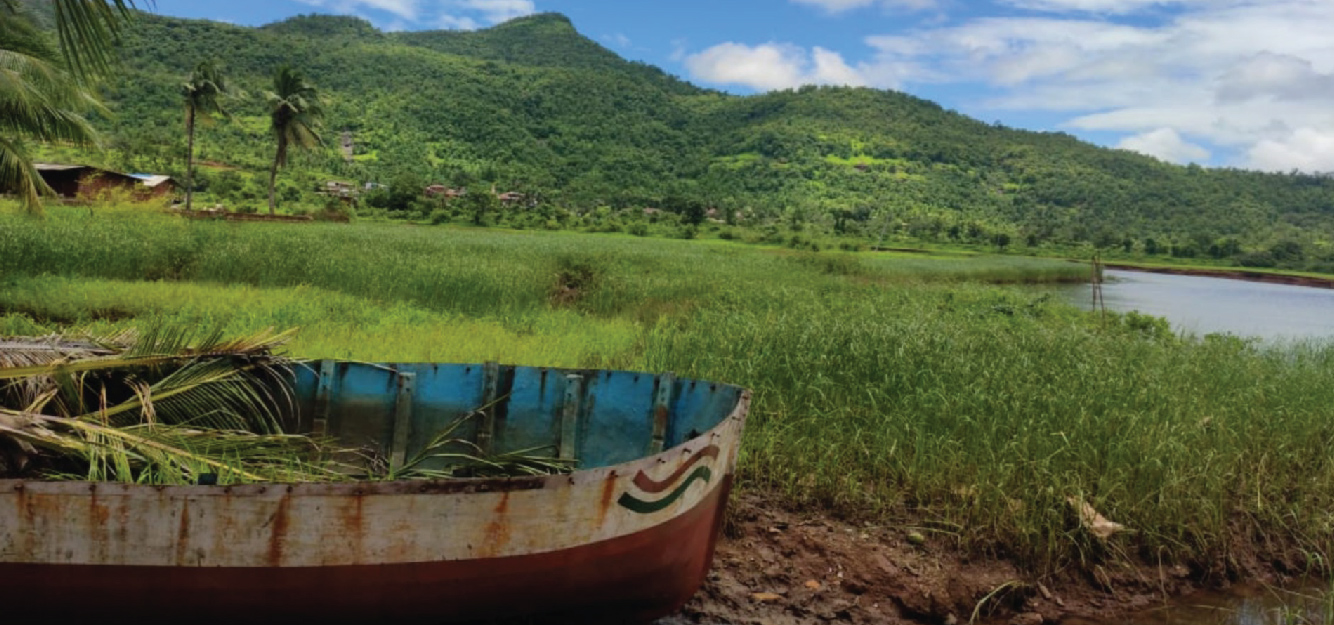The Water Pavilion is an unprecedented collaboration among over 30 organisations, governments, and companies in the water space. The aim is to deliver cutting edge, science-based advice to climate decision makers. Countries can also learn more about the central role that water plays in the climate crisis and the need for water to be at the centre of climate solutions for mitigation and adaptation.
"Water is the 'blue thread' that weaves its impact through every aspect of our lives," said Darío Soto-Abril, Executive Secretary of Global Water Partnership (GWP), one of the main organisers of the Pavilion. "The world can't be climate resilient if it's not water resilient – which means climate agreements need a strong dose of smart water management policies and the financing to implement them."
The idea of a Water Pavilion was born after COP 25, when the climate debate began to increasingly focus on water, landscapes, and systems in addition to technical solutions.
"Now more than ever, smart decisions are needed on how we solve multiple, long-term, and interconnected global crises," said Howard Bamsey, Chair of GWP. We must understand the water impact of chosen economic pathways and the opportunities that good water management offers. Cooperation and partnership-building are more important now than ever, which is why we are a proud co-organizer of the Water Pavilion at COP26."
The pavilion is in the Blue Zone of the COP 26 venue in Glasgow as a convening space for government representatives, observer organisations, and the media attending the COP. At the same time, all events in the Pavilion will be live streamed, allowing people all over the world to engage. This hybrid approach makes the programme more diverse than ever.
"The climate crisis is primarily a water crisis," said Torgny Holmgren, Executive Director of the Stockholm International Water Institute (SIWI), which leads the Pavilion. "To a large extent, we experience global warming in the form of too much or too little water, as floods or droughts. But few countries are aware of how much they can gain from focusing more on water in their climate action, and that is what we want to change with the first-ever Water Pavilion."
SIWI has been working with the Alliance for Global Water Adaptation (AGWA), CDP, GWP, and the International Union for Conservation of Nature (IUCN) to ensure that water is prominent at COP 26.
"The Water Pavilion is an innovative and radically inclusive space for bringing governments and non-state actors together, and as a hybrid pavilion, it makes this climate conference accessible to the global audience. I applaud this initiative's contribution to raising the inclusion ambition of this COP," said Nigel Topping, the UK High Level Champion for Climate Action at COP 26.
Follow the Water Pavilion's events online at: waterforclimate.net. For information on GWP's COP 26 participation, click here.
Water Pavilion Core Partners
Alliance for Global Water Adaptation (AGWA); Arup; German Federal Ministry for Economic Cooperation and Development (BMZ); CDP; CGIAR Research Program on Climate Change, Agriculture and Food Security (CCAFS); Diageo; The Foreign Commonwealth & Development Office of the United Kingdom (FCDO); Deutsche Gesellschaft für Internationale Zusammenarbeit (GIZ); Global Center on Adaptation (GCA); Government of the Netherlands Ministry of Infrastructure and Water Management; Global Water Partnership (GWP); International Union for Conservation of Nature (IUCN); International Water Management Institute (IWMI); International Water Resources Association (IWRA); Ooska News; Republic of Tajikistan Ministry of Energy and Water Resources; Sanitation and Water for All (SWA); Stockholm International Water Institute (SIWI); Scottish Government; The Nature Conservancy (TNC); The Resilience Shift; UN-Habitat Global Water Operators' Partnerships Alliance (GWOPA); United Nations Office for Disaster Risk Reduction (UNDRR); United Nations Economic Commission for Europe (UNECE); UNESCO Intergovernmental Hydrological Programme (IHP); UNICEF; UN Global Compact CEO Water Mandate in co-secretariat with Pacific Institute; Water UK; Water.org; WaterAid; Wetlands International; World Bank Group - Global Water Security & Sanitation Partnership (GWSP); World Meteorological Organization (WMO); World Wide Fund for Nature (WWF).

